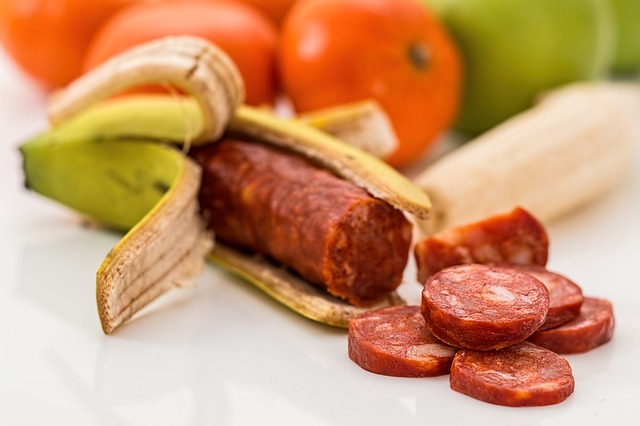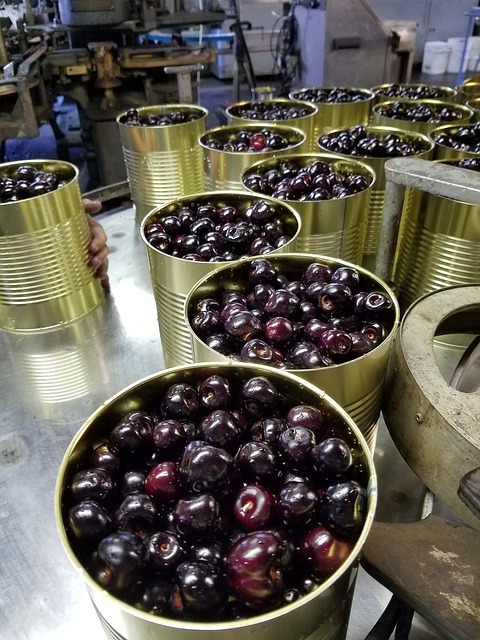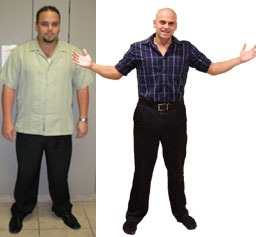 We use the word “processed” a lot when talking about harmful foods that you should cut out of your diet. “Processed” has become somewhat of a buzzword, and it is used so often that its real meaning might be lost. In this article, we will review what exactly processed food is and why you should avoid it, especially when you don’t really know what specifically has been done to the food.
We use the word “processed” a lot when talking about harmful foods that you should cut out of your diet. “Processed” has become somewhat of a buzzword, and it is used so often that its real meaning might be lost. In this article, we will review what exactly processed food is and why you should avoid it, especially when you don’t really know what specifically has been done to the food.
The Definition of Processed Food
Processed foods are foods that, during preparation, have undergone alterations by the manufacturer or producer (NHS, 2010). This can be simple preparations, such as freezing, baking, canning, or drying (NHS, 2010). Processing food is very common and calling all processed food “unhealthy” is just not true. Cereal, canned vegetables, dairy products, bread, and other commonplace foods are all processed (NHS, 2010). Something can be whole-grain and still be processed and, in some cases, the processing is required to make the food safer (NHS, 2010). This applies in the case of milk, where the producers pasteurize the milk to get rid of dangerous bacteria (NHS, 2010).
However, processed food does have its unhealthy side. Candy, prepackaged meats, microwavable foods, pies, and cakes are some of the many examples of processed foods that have a high potential for unhealthiness (NHS, 2010). It’s all about knowing which processed foods are okay and which should be avoided.
The History Behind Processed Food
Another reason the hysterics behind processed food are overblown is due to the fact that processing has been going on for thousands of years. Take bread, for example. Baking is a form of processing. Baking bread predated agriculture, with evidence of early European societies having baked bread more than 12,000 years ago (Kim, 2013). Beer, also processed, is said to date back to 7,000 B.C. (Kim, 2013). Cheese goes back to 5,000 B.C. and olive oil, which is fermented, back to 4,500 B.C. (Kim, 2013). The list goes on. The bottom line is that food processing isn’t new and it isn’t a dangerous fad.
 What Processed Foods to Avoid
What Processed Foods to Avoid
Processed foods to avoid are the usual culprits: foods with high fat, high sugar, low fiber, and high sodium. These could be candy, wrapped cakes, salty beef jerky, chips, and other similar snacks. Luckily, foods are required to have nutrition facts on them, so looking at the back of the package will help you avoid overdoing it. An acceptable amount of sugar, sodium, and fat depends on whether you are a man or a woman. For example, assuming you are not on an acute weight loss plan or diet, men should get no more than 150 calories per day from sugar, whereas women should not exceed 130 sugar-derived calories (Kris Gunnars, 2018).
What Processed Foods Are Okay to Eat
Whole grain cereals, bread, canned vegetables, and other foods are not unhealthy. Dairy products are acceptable as well. Again, look at the fat, sodium, fiber, and sugar content of the foods. If they are above your recommended limit, then you should either not eat them or consume only a small portion. Processed foods are not to be avoided absolutely; otherwise, your diet would have next-to-nothing in it. What counts is more about what’s in or absent from processed foods.
What are Some Non-Processed Foods?
You might be wondering what isn’t processed. Non-processed foods haven’t undergone any alterations. Fruits, vegetables, and proteins such as fresh eggs and honey are non-processed (Slayton, 2019). Note that you should take care to wash and cook your food carefully. Non-processed foods are subject to bacteria that processed foods are not. Honey, for example, should never be given to an infant under age one (Slayton, 2019). Because honey is not pasteurized, there is a risk of botulism, a disease that has spores that will harm an infant’s immune system (Slayton, 2019).
Hopefully, this article has helped shed light on what exactly comprises the term “processed food.” Processed food doesn’t just mean boxed, artificial foods. There are some processed foods that are nutritious, while others are definitely unhealthy.
CardioMender, MD Weight Loss Specialists is South Florida’s most trusted medically supervised weight loss program. We provide customized, safe, rapid weight loss and the means to keep it off. At CardioMender, MD a doctor is ALWAYS available. Start losing weight today, under the supervision of Chief Medical Officer Barry H. Schiff, MD, a 32-year veteran Board-Certified Cardiologist and Internist. Dr. D. Allen Young is a Board-Certified Obesity Medicine Physician and Internist.
To find out more about how we can help you reach your goals using proven strategies, please visit us at www.cardiomenderweightloss.com or call us at 954-628-3802 to set up your appointment today.
References
Kim, E. (2013, 09 01). Processed Food: A 2-Million Year History. Retrieved from Scientific American: https://www.scientificamerican.com/article/processed-food-a-two-million-year-history/
Kris Gunnars, B. (2018, 06 28). Daily Intake of Sugar — How Much Sugar Should You Eat Per Day? Retrieved from Healthline: https://www.healthline.com/nutrition/how-much-sugar-per-day
NHS. (2010, 01 06). Eating processed foods. Retrieved from NHS: https://www.nhs.uk/live-well/eat-well/what-are-processed-foods/
Slayton, R. (2019). A List of Non-Processed Foods. Retrieved from Livestrong: https://www.livestrong.com/article/271042-a-list-of-non-processed-foods/
CardioMender, MD Weight Loss Specialists is South Florida’s most trusted medically supervised weight loss program. We provide customized, safe, rapid weight loss and the means to keep it off. At CardioMender, MD a doctor is ALWAYS available. Start losing weight today, under the supervision of Chief Medical Officer Barry H. Schiff, MD, a 32-year veteran Board-Certified Cardiologist and Internist. Dr. D. Allen Young is a Board-Certified Obesity Medicine Physician and Internist.



